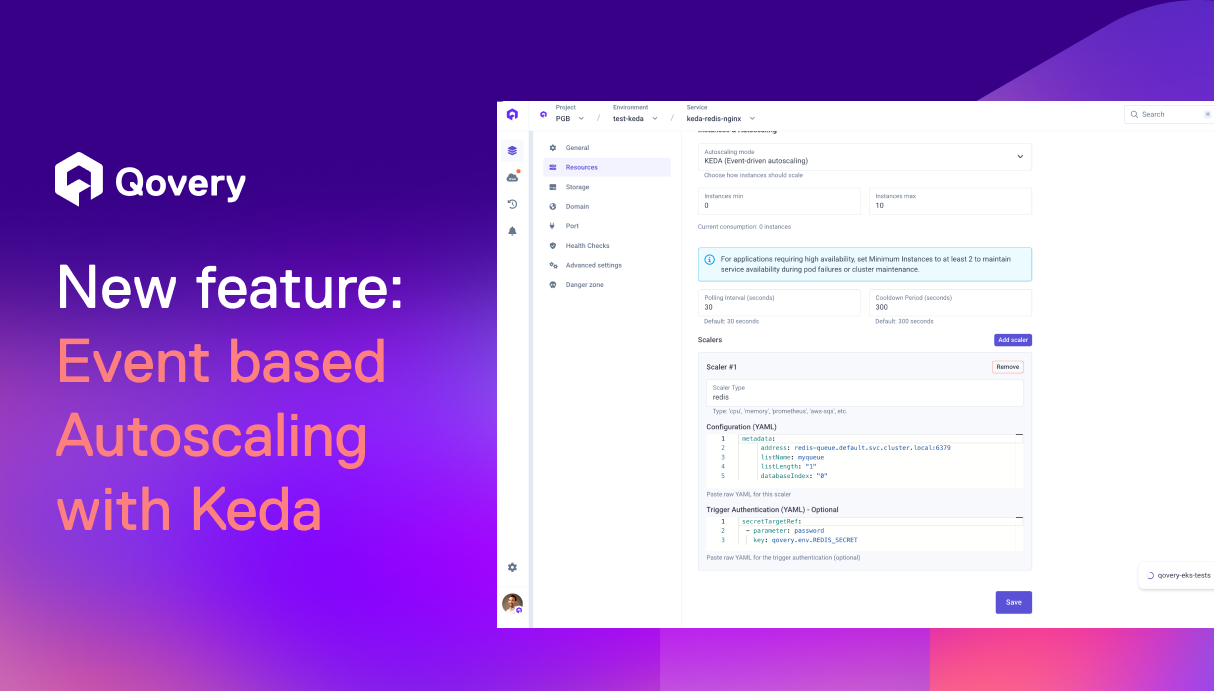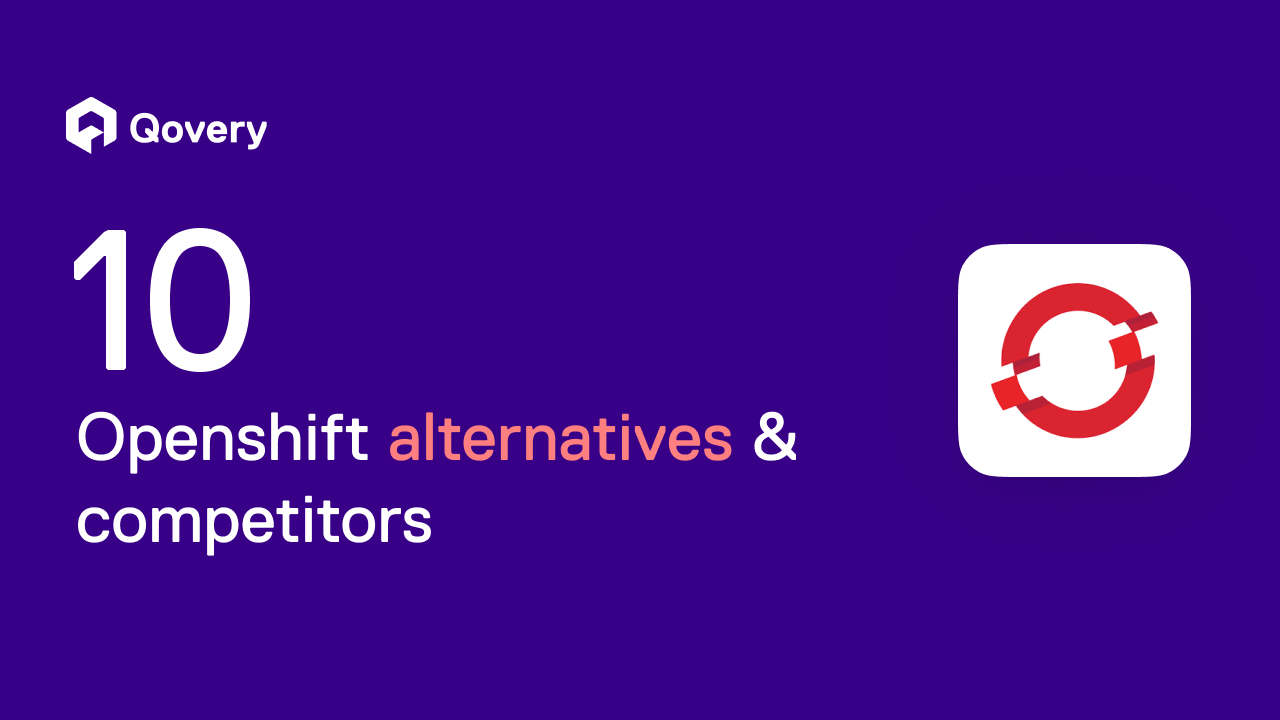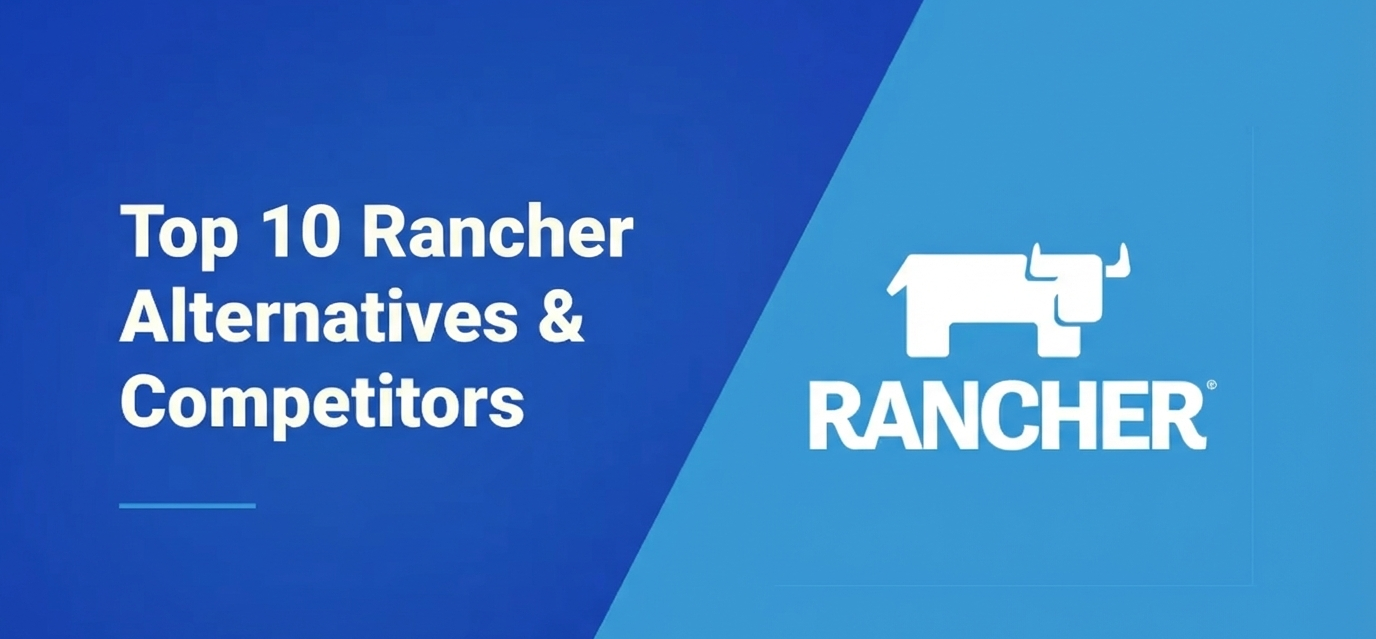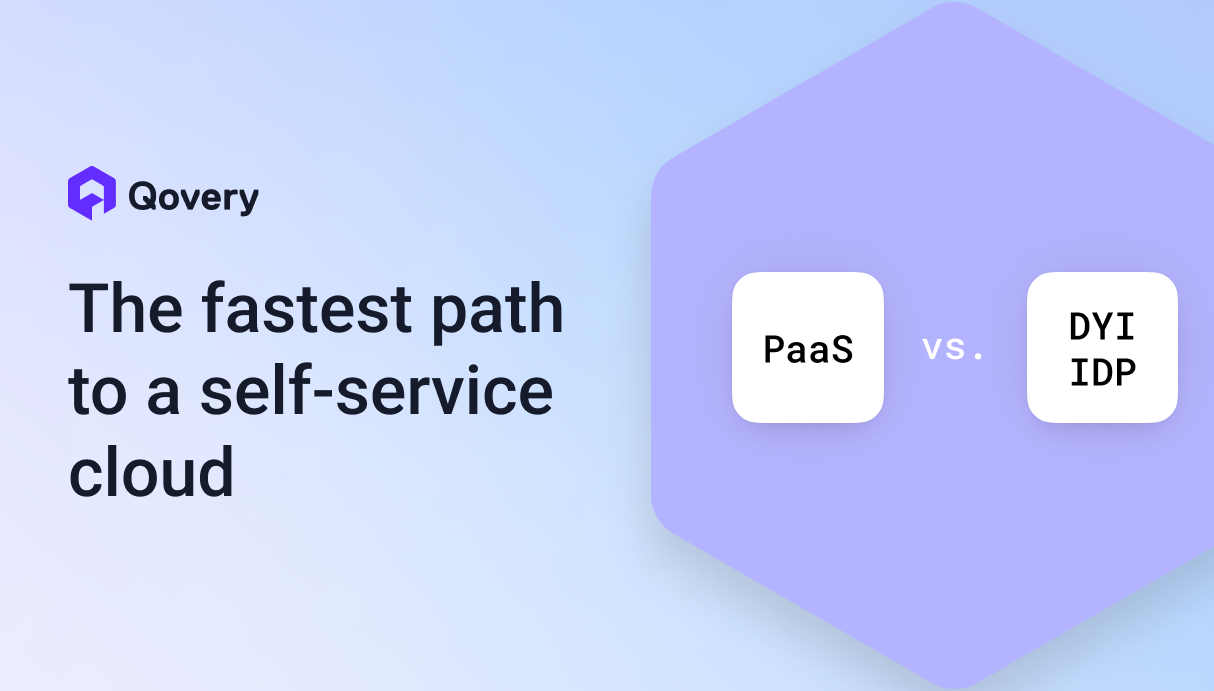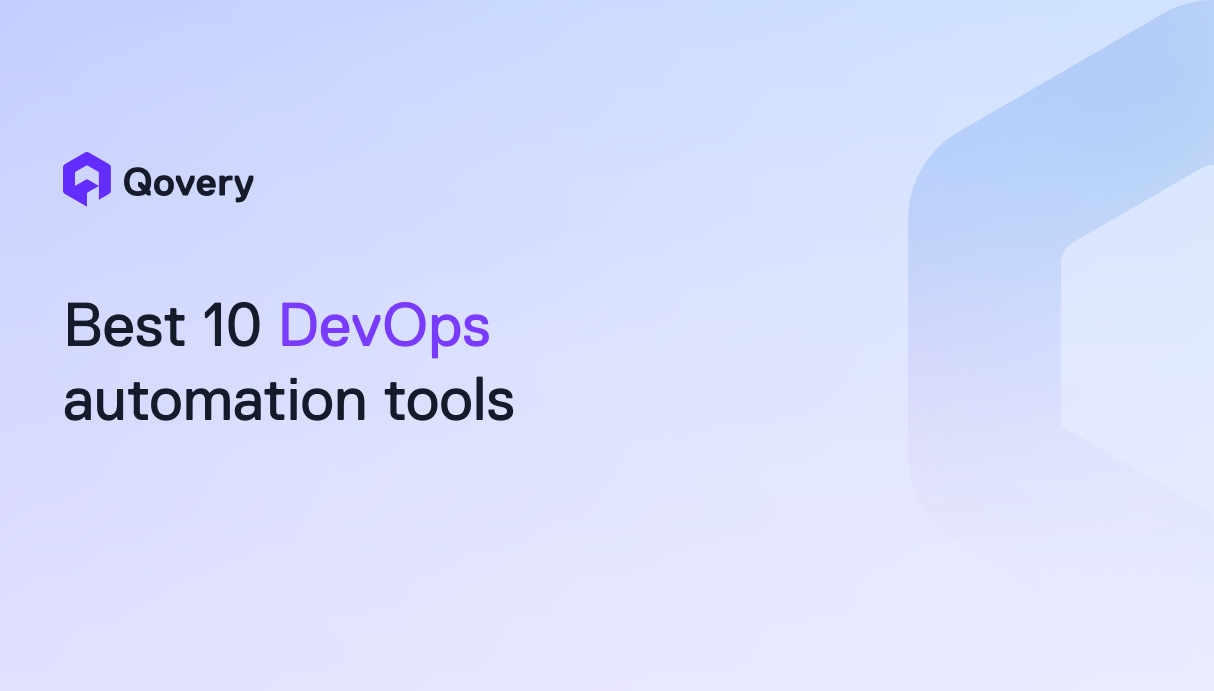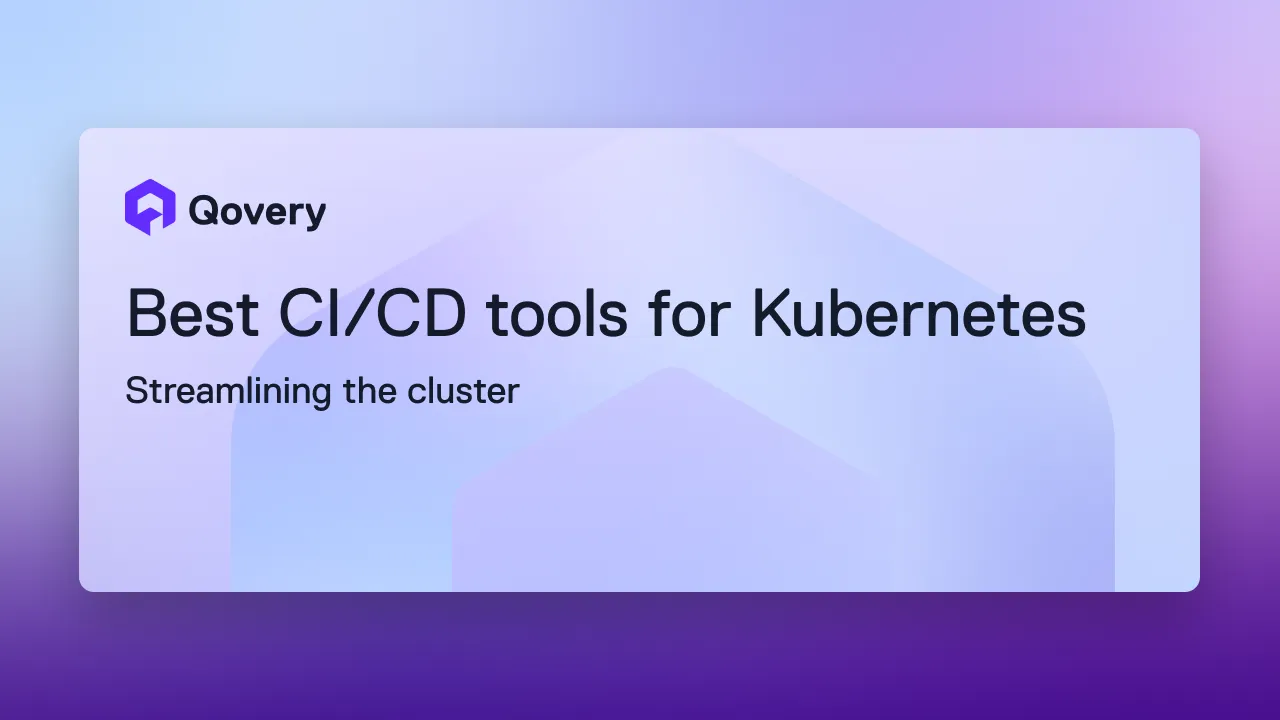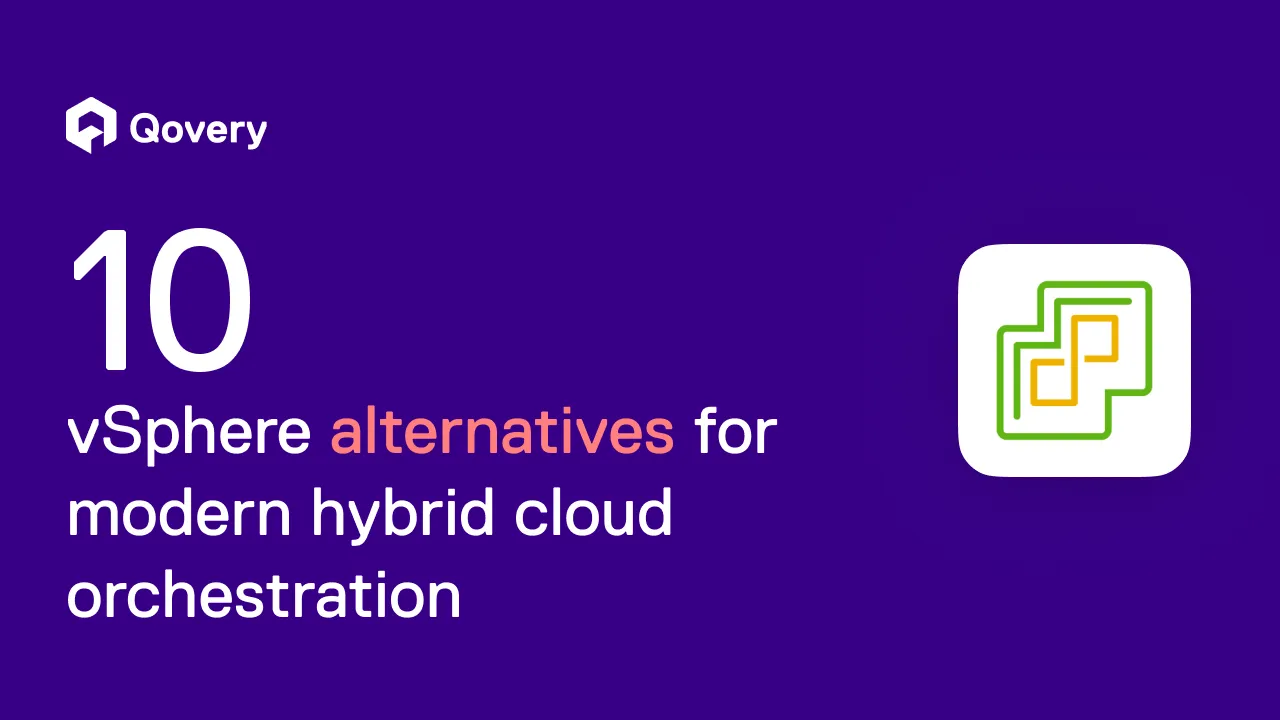


Seamless Transition to Kubernetes: Ninetailed's Path to Production with Qovery

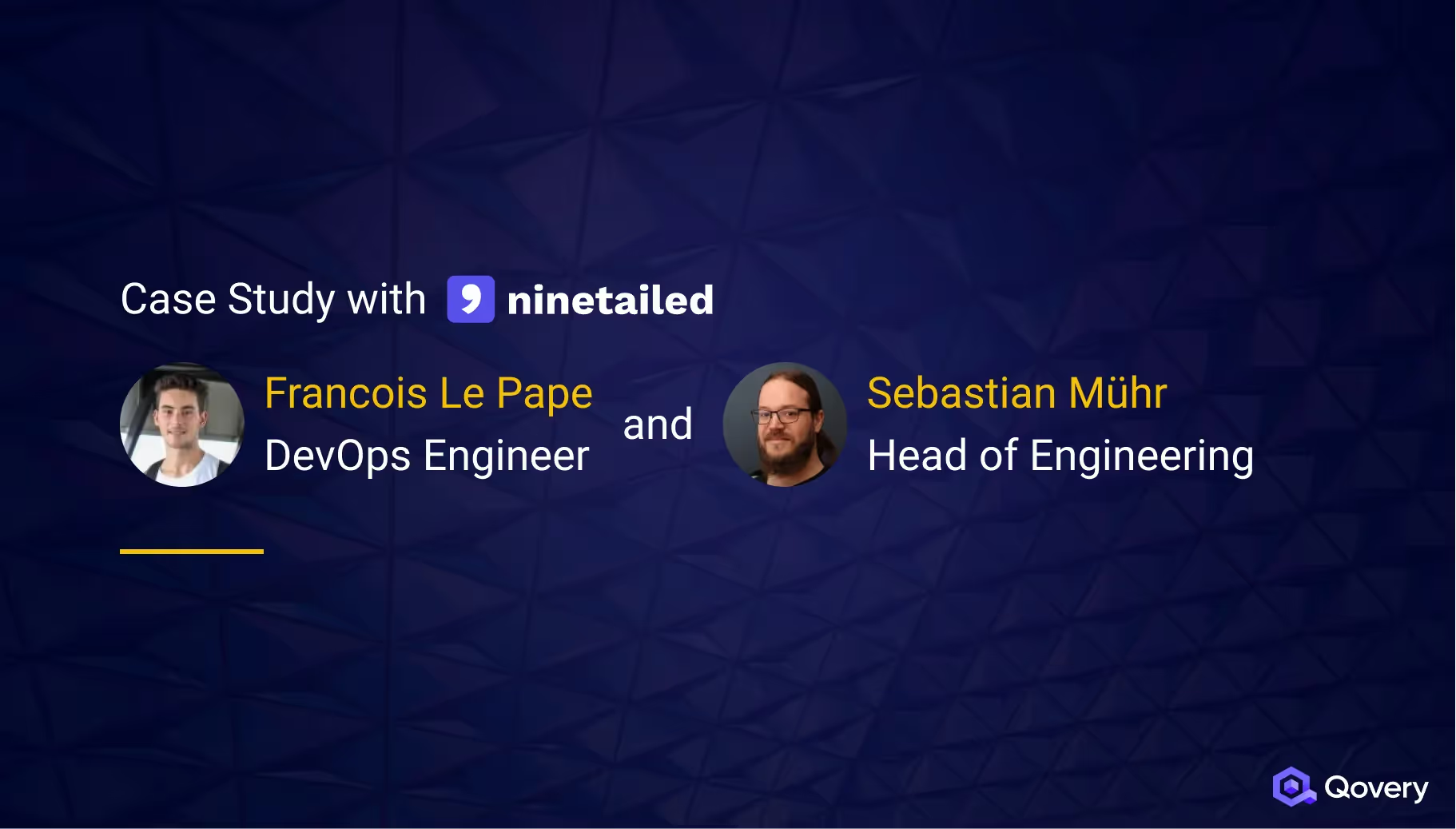

Ninetailed Introduction
Ninetailed offers a composable personalization (see guide) and experimentation solution that seamlessly integrates with popular content management systems like Contentful. With Ninetailed, you can easily create personalized experiences and A/B tests for different audience segments based on past behavior and contextual data. Tailor content for each group across your website, mobile app, and other digital channels.
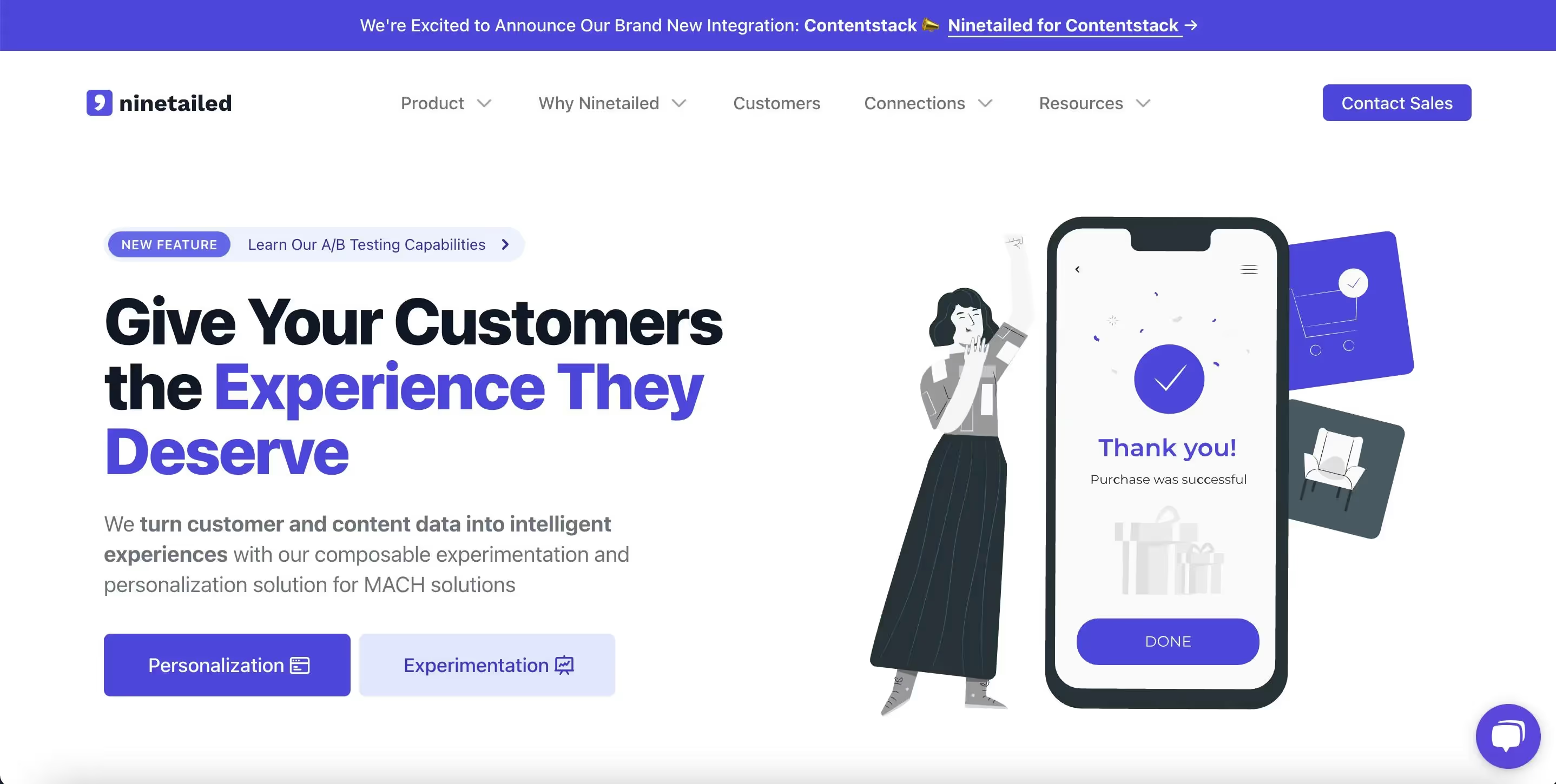
Learn How Qovery Helped Ninetailed Scale Their Infrastructure
Moving Towards Self-Service Infrastructure for Faster Scaling
Initially, their front-end applications ran on Vercel, with Cloudflare workers serving as the serverless service workers for their main API. While one part of their product is and will remain serverless because it allows them to be the fastest personalization tool on the market, for other standard APIs requiring more standard features like a CRUD on top of a database, and some queues they needed to find another type of solution.
To address this, they began exploring alternative options, specifically a more traditional application setup using technologies like Node.js. They sought a deployment solution that would not only facilitate quick setup but also lay the foundation for future scalability. Being a startup focused on rapid fundraising, it was crucial for them to have an infrastructure that could support their growth plans.
Ninetailed's aim was to establish an infrastructure that allowed them to deploy multiple applications without complications easily. They wanted a solution that would enable them to seamlessly manage different apps, assign roles within the company, and ensure smooth production deployments. Their goal was to create a robust foundation that would support their growth and deployment needs effectively.
A Desire to use Kubernetes but a Stiff Learning Curve and a Long setup
Eager to leverage Kubernetes, they faced the challenge of a steep learning curve and a time-consuming setup process. Sebastian, having prior experience with Kubernetes, understood the potential difficulties and lengthy implementation time. In a previous company, moving from On-prem to then be in Kubernetes took a year, and considering their plan to raise funds within three to four months, Ninetailed couldn't afford the luxury of a year-long training period. While initially considering managing their own EKS (Elastic Kubernetes Service), they realized the need for a more efficient solution to have their systems up and running before the funding round without compromising on the learning process and setup time.
Qovery: The Perfect Solution to be Production Ready with Kubernetes in no Time
While doing some research, they ended up discovering Qovery and realized that it might enable them to swiftly adopt Kubernetes and get their systems up and running in no time. With just an initial call, they had Qovery set up within an hour, and most of the configuration was done at that point. Over the next couple of weeks, they spent some time fine-tuning certain aspects.
After trying Qovery during a trial period, they quickly realized its potential and seamlessly transitioned from proof of concept (POC) to production. The team started by focusing on deploying applications in a production environment. During this phase, the setup was mainly handled by Sebastian. Once everything was up and running, Qovery's fully managed service required minimal ongoing involvement.
The Qovery dashboard became less active for them as their single app ran smoothly with automatic deployments. Occasionally, they reached out to Qovery's support team for assistance, receiving fast and helpful responses. As the team expanded and more people joined their dedicated DevOps engineer, François, took over the responsibilities they had previously handled.
When he joined as the first DevOps member, Ninetailed already had their production environment running on Qovery, with several applications primarily built with NestJS and associated databases. Setting up staging environments was a breeze, with just a few clicks on the user-friendly interface. Over time, they gradually added more applications, and now they have around 11 or 12 running seamlessly on Qovery.
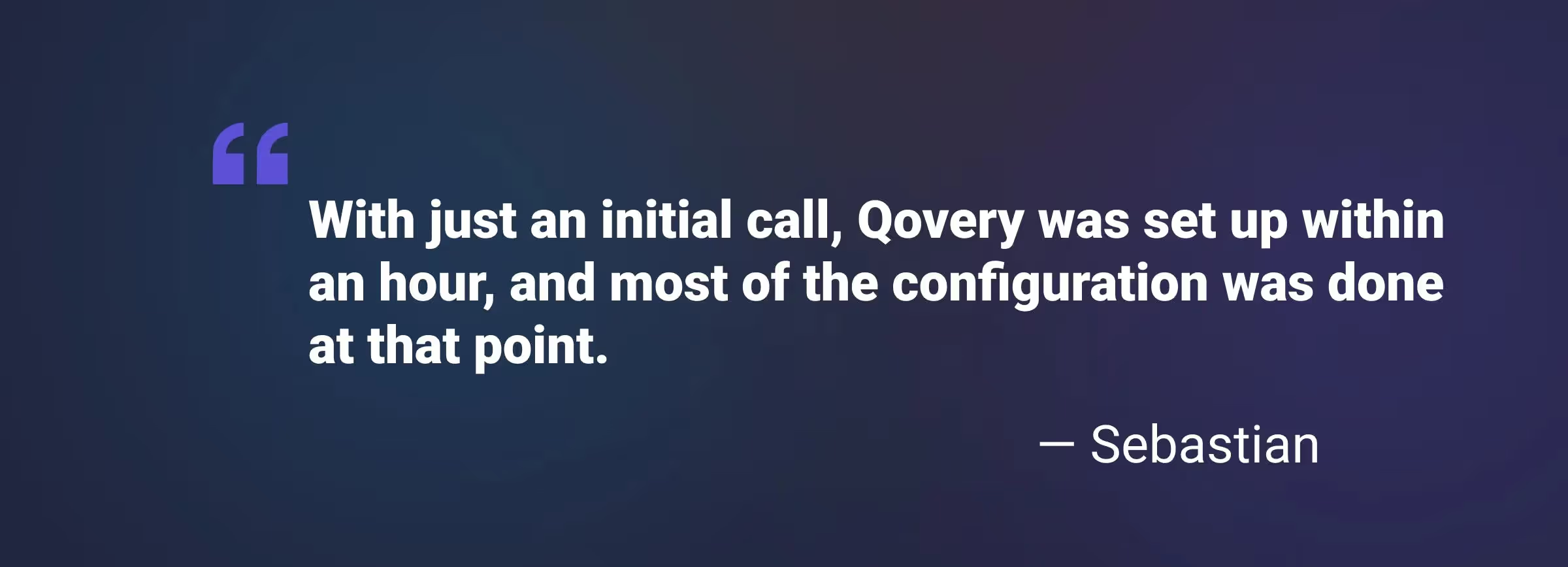
Key benefits after several months of using Qovery
Increase Developer Autonomy
Developers have experienced a significant boost in autonomy, particularly when it comes to testing on staging, thanks to the Ephemeral Environments; they still ask for DevOps assistance when it comes to creating a new application or troubleshooting more intricate issues, but the user interface provided by Qovery offers a nice and concise overview, making it easy for developers to navigate and understand the system. They also appreciate the ability to access and analyze logs. This feature proves especially useful when they perform test deployments of their latest creations on the staging cluster. In the event of a failure, they can quickly refer to the logs to identify the root cause and understand why the deployment didn't succeed.
Less Workload for the DevOps in Place
Francois learned about Qovery about two months before starting his role as the first DevOps at Ninetailed, so when he joined the company, he was eager to try it. In the fast-paced startup environment, as well as many other industries, speed is essential. Deploying applications with just two clicks is incredibly powerful, as it frees up some of his time to concentrate on other essential tasks like exploring integrations that could benefit the team. This streamlined process empowers developers to be more self-sufficient, eliminating the need to rely heavily on DevOps to test in production-like environments and avoid potential bottlenecks.
Enhancing Control and Security with RBAC Implementation
As soon as the company grew, they decided to implement the RBAC (role-based access control) to ensure the smooth usage of Qovery by the entire development team. RBAC provided them with the peace of mind that no accidental missteps would result in the deletion of important settings.
Francois and Sebastian, as the owner and admins, hold control over both the staging and production environments. On the other hand, developers have been granted viewing rights only on the production environment and all rights on staging. This enables them to test their applications on staging, review logs, and gain valuable insights. In cases where infrastructure changes are required, Francois and Sebastian are responsible for handling those tasks. This collaborative approach ensures a secure and streamlined workflow, empowering the entire team to work effectively within their designated roles.
Qovery’s Doppler Integration to Enhance their Secret Management
More recently, and after following the advance of Qovery’s Doppler integration on our public roadmap, Francois wasted no time in taking advantage of this latest partnership. Although it's still early days since its release last week, Doppler integration is already proving to be a significant addition with a lot of potentials to simplify secret management and improve efficiency.
The integration with Doppler fills a crucial gap in their workflow. While they had been successfully managing front-end, back-end, and serverless environment variables using Doppler, Qovery's DevOps automation tool was the missing piece that required manual intervention. Gone are the days of juggling multiple platforms and ensuring each application has the most up-to-date secrets. With Doppler integration, effortlessly keeping secrets in sync across all their tools has become a reality.
What’s Next for Ninetailed
Ninetailed has an exciting roadmap ahead, with a strong focus on becoming even more API-first. While already built around APIs, they are expanding their offerings to ensure that every feature and launch is available both through their user interface (UI) and as an API.
They are also committed to enhancing integrations with their partners. This includes collaborating with different content sources, analytics solutions, and diverse data sources to provide seamless connectivity and compatibility.

Suggested articles
.webp)



.svg)
.svg)
.svg)
